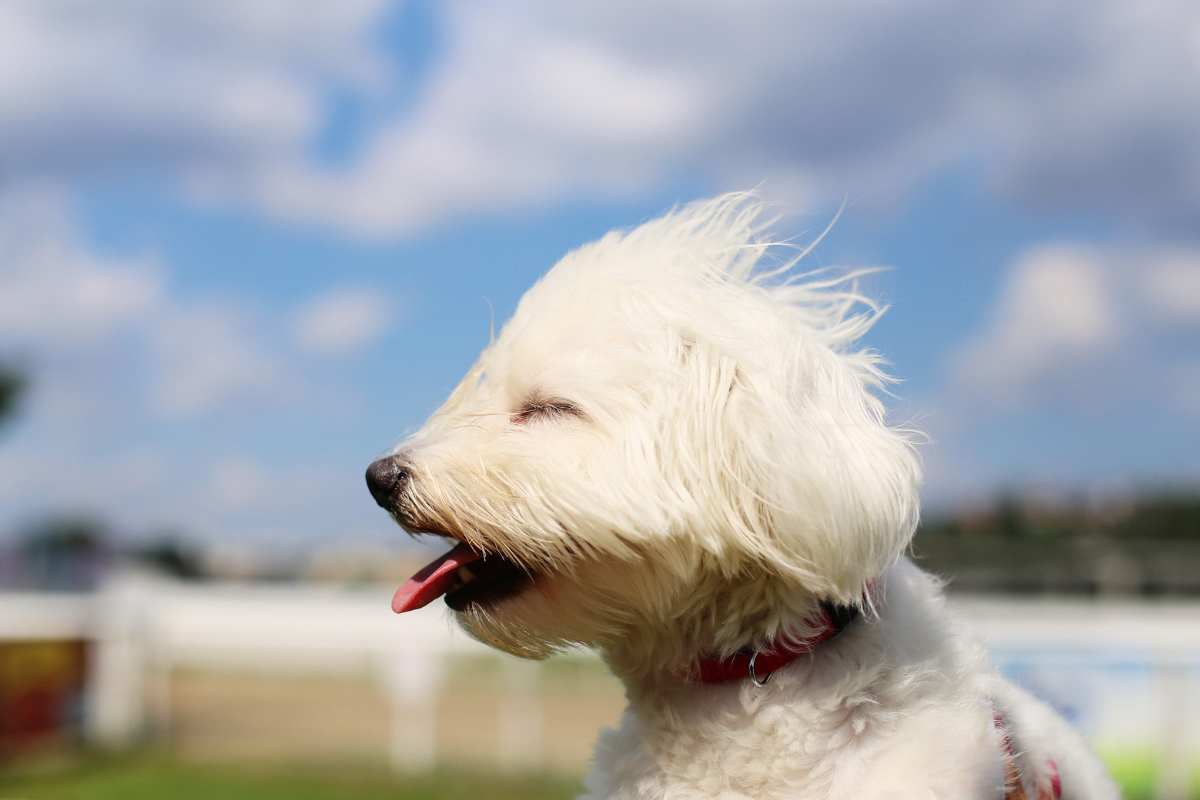Why Does My Dog Go a Little Crazy When It's Windy

It's a familiar scene for many dog owners – the wind starts to pick up, and suddenly, your once composed and calm canine companion transforms into a whirlwind of energy. Tail wagging, ears perked up, and a sudden burst of excitement take over. But why does your dog go a little crazy when it's windy? In this article, we'll explore the various reasons behind this intriguing behaviour and delve into the fascinating world of canine senses and instincts.
Heightened Sensory Experience - Dogs experience the world through their senses, and when the wind blows, it amplifies their sensory experience. A dog's sense of smell is incredibly powerful, and a gust of wind carries a multitude of scents from miles away. The swirling air brings with it a symphony of odours – from distant animals and plants to the scent of changes in weather. This olfactory overload can trigger excitement and curiousity in your dog as they try to decipher the complex tapestry of smells.
Playful Interaction with the Wind - Imagine standing in a gusty wind – you might find it exhilarating, and your dog feels the same way! Windy weather adds an extra element of playfulness to the environment. The sensation of the wind against their fur, the rustling of leaves, and the movement of objects in the breeze can trigger a dog's playful instincts. Your furry friend might feel compelled to chase leaves, run in circles, or simply revel in the sheer joy of being outdoors during the windy weather.
Unpredictable Sounds - The wind carries not only scents but also a medley of sounds. Rustling leaves, creaking branches, and the howling of wind create a symphony of noises that might be both intriguing and slightly unsettling for your dog. These unpredictable sounds can stimulate a dog's natural alertness and, in some cases, trigger a playful response. Some dogs may bark, howl, or exhibit other vocalisations as a way of expressing their excitement or attempting to communicate with the mysterious sounds around them.
Atmospheric Changes - Dogs are known to be sensitive to atmospheric changes, and the wind often heralds a shift in weather conditions. A sudden drop in barometric pressure or changes in humidity levels can be sensed by your dog, even before you notice them. This sensitivity to atmospheric changes might create a sense of restlessness or excitement in your dog, as they react to the anticipation of an impending weather shift.
The Call of Instincts - While domestic dogs may seem far removed from their wild ancestors, they still retain many of their innate instincts. Windy conditions can awaken these primal instincts, causing your dog to respond in ways reminiscent of their ancestral behavior. For example, the wind may trigger a dog's hunting instincts, leading them to become more alert, focused, and eager to explore their surroundings.
Energy Release and Boredom Buster - Dogs, especially those with high energy levels, often need an outlet to release pent-up energy. Windy weather can serve as a natural stimulant, providing an opportunity for your dog to burn off excess energy through play and exploration. If your dog tends to be more active during windy days, it might be a sign that they appreciate the chance to stretch their legs and engage in activities that alleviate boredom.
In conclusion, there are several reasons why your dog may go a little crazy when it's windy. From heightened sensory experiences and playful interactions to the influence of atmospheric changes and primal instincts, each dog's response may vary. Understanding and appreciating your dog's behavior during windy weather can deepen the bond between you and your furry friend. So, the next time the wind picks up and your dog starts to dance around in excitement, remember that it's just their way of embracing the wonders of the world around them.





